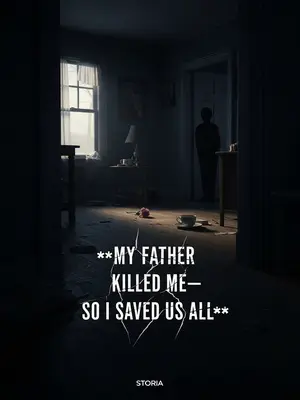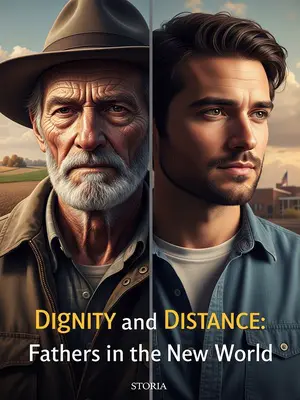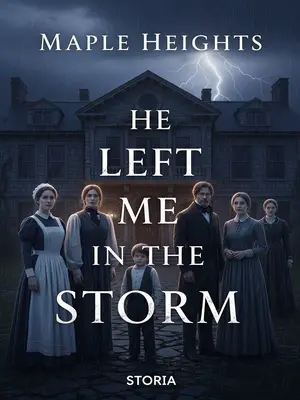Shadows and Revelations
After the restructuring, the old mill had long been abandoned.
Its windows were boarded up, the parking lot cracked and overgrown with weeds. But the old sign still hung crooked above the entrance, like it was waiting for the workers to come back.
But maybe, in Dad’s eyes, this place was still waiting for him to clock in.
I wondered if, in his mind, time had frozen here—before the layoffs, before the illness, before everything changed.
“You always played here when you were little. Do you remember?” Mrs. Parker started chatting, her voice warm and easy.
She smiled at me, eyes crinkling, as if we were just out for a Sunday stroll.
“I remember a little.”
I lied, because honestly, I remembered everything.
I remembered the mill’s whistle at noon, the workers pouring out for lunch, Dad’s broad back, the way he’d wave to me from the loading dock.
I remembered my dad was a worker, and even after I finished the SATs, he was still just a worker.
Back then, mills weren’t like today’s big companies with strict 9-to-5s and rigid shifts.
He’d work long hours, sometimes doubles, always coming home tired but never complaining. I didn’t appreciate it back then.
As long as you were willing to work hard, there were plenty of chances to get promoted.
But my “content with the status quo” dad never showed any ambition from start to finish.
He seemed satisfied with what he had, never chasing after more. It frustrated me, even as a kid.
From childhood to adulthood, I never made it to the top three in my class, just like Dad’s salary never changed.
“Emily studying hard is right. Her dad is a worker, my dad is the plant manager. Even if I come in last, I won’t worry about finding a job.”
That’s what my desk mate said about me behind my back.
Sensitive as a teenager, I went home and grilled Dad about why he wasn’t more ambitious.
He, meanwhile, served me mac and cheese, laughing it off.
“Isn’t it enough to be full and not hungry? Being a manager is too busy. Would he have time to eat with his daughter?”
He’d ruffle my hair, spooning cheesy noodles onto my plate, like that was the only answer that mattered.
“I’d rather eat alone.”
My dislike was real, but Dad just kept being cheeky.
He’d wink at me, pretending not to notice my sulking. Nothing seemed to faze him.
He still wore dirty work clothes every day, squatting at the school gate to wait for me.
From far away, I’d start avoiding him, leaving by the side gate instead.
Unaware, Dad would still wait there, clueless.
“Linda, did you see our Emily when you picked up your child?”
“Ben, is our Emily staying after school for patrol?”
Whether it was students or parents, my anxious dad would grab people and ask.
Unbeknownst to him, I had already “taken another route” home.
I’d watch him from a distance, guilt prickling, but I never turned back.
Until today, after reaching my own peak and then being forced to give up my shares to care for Dad, lowering my pride and starting over,
I can finally admit my childhood thoughts.
Actually, I always looked down on my dad.
He used his “mediocrity” to be the best negative example in my life.
Just as I was about to head to the workshop, Mrs. Parker pulled me back. “No, no, the office is this way.”
I stopped mid-stride, surprised by her insistence.
I was stunned. Could Mrs. Parker be confused too? “Aren’t we going to the workshop? Why the office?”
Last time I found Dad, it was at the mill gate, so I just assumed he’d come to the old workshop to ‘reminisce about the hard times.’
“What? Mr. Rivers used to work in the office!”
Mrs. Parker’s eyes widened, lost in memory. “I remember every time I went to hand in paperwork, I could always get a cup of coffee.”
She laughed, her voice echoing in the empty parking lot, as if the old break room still buzzed with life.
Mrs. Parker’s hearty laughter was full of nostalgia for her youth.
But I was confused.
This was the first time I started to doubt my own memory.
“Your dad was really impressive back then. When he joined the mill, so many people had their eyes on him. He was the first one in the mill with a college degree… So rare.”
College degree?
Was this a joke?
The Mr. Rivers in Mrs. Parker’s eyes seemed different from the ‘mediocre’ Mr. Rivers in mine.
With doubts swirling, Mrs. Parker and I kept walking.
The sun dipped lower, shadows stretching across the cracked pavement. My mind churned with questions I’d never thought to ask.
“Who is it? No trespassing inside the mill.”
A hoarse male voice sounded behind us, making us both turn around.
The voice startled me, snapping me back to the present.
“Mr. Jenkins, long time no see.”
Seeing who it was, Mrs. Parker hurried over.
The elderly man adjusted his glasses and walked toward us.
“Is that Sally Parker from the Rolling Line? Ah, I didn’t expect to see you here.”
Old colleagues meeting, both were enthusiastic.
“Is this your daughter? She doesn’t look much like you.”
Soon, the old supervisor noticed me.
He naturally thought I was Mrs. Parker’s daughter, since we were about the same age.
“No, this is Mr. Rivers’ daughter. She used to be a big boss in Chicago… Now Mr. Rivers is sick, and the child is devoted, so she came back to take care of him.”
“Mr. Rivers, is that the former Manager George Rivers of the mill?”













